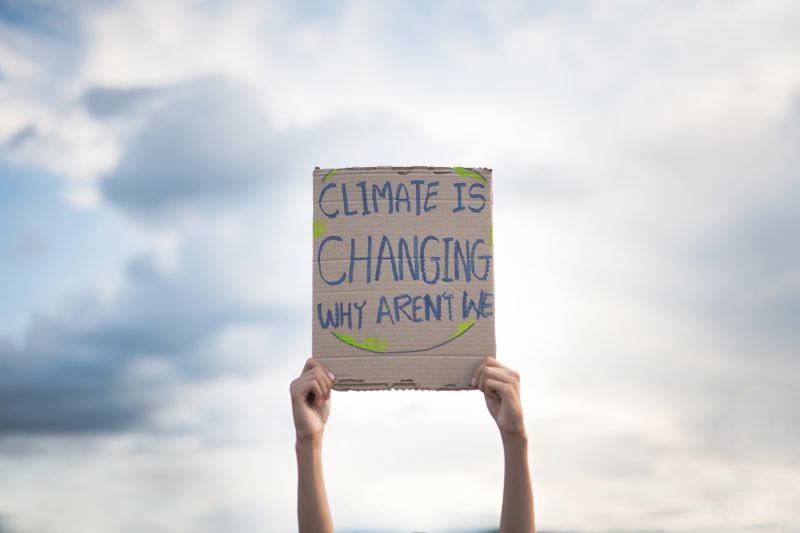
AdobeStock by piyaset
Of those 32.6 million, 21.4 million people are from the Asia-Pacific region, making it the most statistically impacted region for climate change displacement globally.
Read the Term 4 edition of School News HERE
The report outlines the climate-induced barriers to education that people may face both at present and in future, and concludes with a series of recommendations to policy-makers to ensure education remains a right even in the face of climate emergencies.
It’s published as the forecasted El Nino conditions are expected to exacerbate the effects of climate change. Globally, there is a risk of heat waves, drought, wildfires and intensified weather events. At home in New Zealand, Northland is being put on high alert during wildfire season, and areas of the country are at risk of drought conditions.
The right to education
Education is defined by Te Kāhui Tika Tangata | The Human Rights Commission as being “both a human right in itself and an indispensable means of realising other human rights.”
It is defined as a right in a number of international treaties, including those ratified by New Zealand. Although the right to education is not explicitly outlined in New Zealand law, the principles of education as a human right are reflected in the Education Act 1964.
[Edit: The original article wrongly references the Education Act 1964. This act has since been repealed by the Education and Training Act 2020, which states in section 32(a) that “all children and young people are present in the schooling system to be able to exercise their right to an education”, and in section 33 that children have a “right to free enrollment and free education at State schools (including entitlement to attend full time).]
In the past year, New Zealand has experienced a number of climate-change related events, leading to schools becoming places of emergency shelter. We also saw some communities internally displaced for a time, disrupting the provision of education.
In the UNESCO report, it’s specifically mentioned that pre-existing inequalities are likely to be exacerbated by climate-change related displacement. Around 80 percent of individuals impacted by climate-change displacement worldwide are women. Children are also vulnerable.
Climate-change induced barriers
In early 2023, New Zealand saw Cyclone Gabrielle and flooding events coincide with the beginning of the school year, disrupting education for many in the country.
The severe wind, rain and wet saw over 400 schools close across the North Island, with five in Hawkes Bay and Tai Rāwhiti unable to open. A small number of schools remained closed after Cyclone Gabrielle passed, with some being due to property damage and the rest due to access and staffing issues.
These are local examples of some of the educational barriers that climate disruptions cause, according to the UNESCO report.
But destruction of infrastructure and a lack of teachers and education personnel are just some of the more immediate consequences of climate-change events. Another, long-term barrier to accessing education in the aftermath of a weather event includes economic barriers. When communities face mass disruption to their livelihoods, homes and rohe, existing poverty may be exacerbated and vulnerable groups may be tipped over the margins. Economic hardship can indirectly prevent young people from accessing education, as the risk of drop-out is heightened due to financial pressures.
Additionally, New Zealand has an ongoing commitment to our Pacific neighbours, who continue to be disproportionately impacted by climate change. The report recommends having clear pathways without quotas or education and language barriers for internationally climate-displaced people. Currently, New Zealand has a Pacific Access category for Pacific migrants, yet there are some limiting conditions which may prevent the most vulnerable from accessing the visa.
Other recommendations from the UNESCO report include:
For the Asia-Pacific region specifically:
A new report from the University of Auckland’s Our Voices Project asks young people what…
The government has opened a tender for new standardised assessment tests, leaving educators shocked and…
Early in her career, Kiri Turketo found inspiration in an unlikely source. In this Principal…
Real stories of dedication, challenges, and triumphs from educators in NZ. Part six comes from…
Is fast furniture impacting your school's environmental footprint? We explore eco-friendly solutions to reduce furniture…
A new report from the New Zealand Initiative argues we need a stronger and clearer…
This website uses cookies.